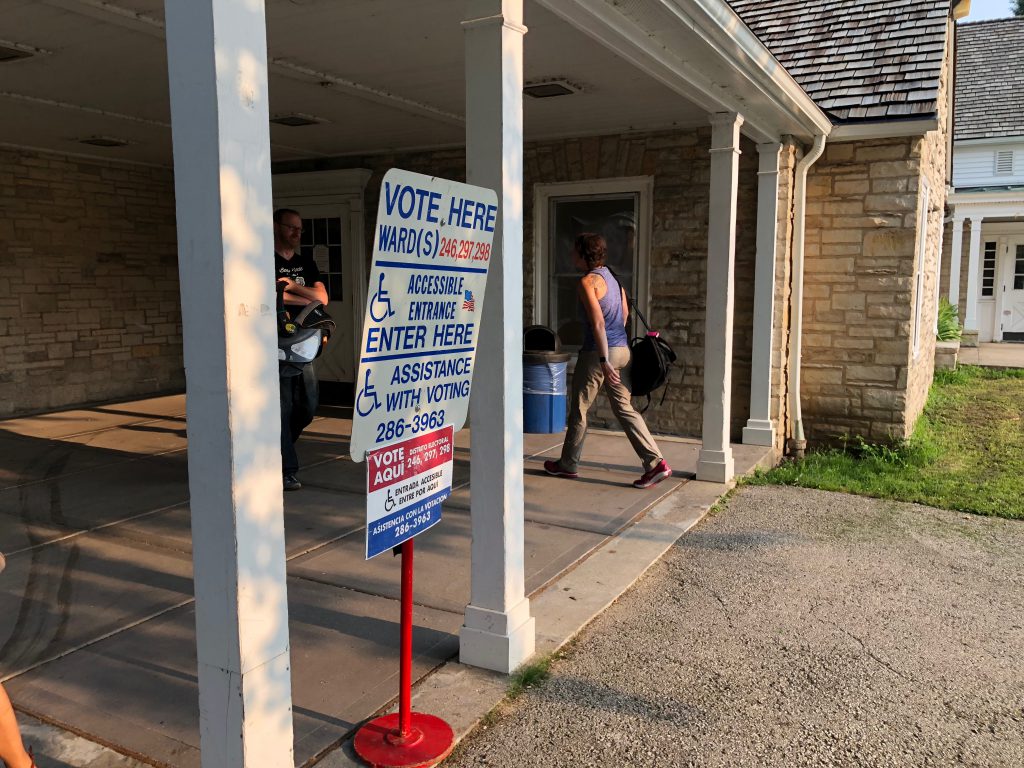Bill Pushes Ranked Choice Voting
Democratic legislation would switch to approach used in Maine and numerous cities.
On Dec. 11, Rep. Mark Spreitzer and Sen. Mark Miller introduced their proposal for changing the way we vote in Wisconsin.
Their proposal would enact ranked-choice voting (otherwise known as instant-runoff voting), which is the way people vote in Maine, for instance.
Ranked-choice voting is especially helpful when there’s a crowded field of candidates, or credible third party candidates.
Here’s how it works. On your ballot, you get to pick your first choice like you do now, but then you get to identify your second choice and your third choice. If one candidate gets a majority of the votes, that candidate wins, just like now. But if no candidate gets a majority, then the candidate with the fewest first-place votes is eliminated, and anyone who voted for that candidate then gets to have their second-choice candidate counted as their first choice. This process continues until one candidate gets a majority of the votes.
Sen. Miller added: “Ranked-choice voting gives voters the best opportunity to elect representation with the broadest public support.”
“It’s something I’ve been personally interested in for a long time,” Spreitzer tells the Wisconsin Democracy Campaign in an interview. “I studied comparative elective systems in college.” He went to Beloit College and represents the Beloit area. “I’ve certainly had some constituents, including a former professor, support this idea,” he says, “and as the State of Maine has moved to this, there’s been a lot more public awareness of it.”
And it’s not just Maine. An increasing number of cities and towns are using it for municipal or school board elections, including: Berkeley, Cambridge, Minneapolis, Oakland, Portland (Maine), San Francisco, Santa Fe, St. Paul, and Takoma Park, among others.
Spreitzer says “the most attractive part is that voters get to fully express themselves for the candidate they prefer, and they don’t have to hold their noses and play that strategic voting game.”
He says he feels for voters who tell him, “I’d like to vote Libertarian, Green, or Independent, but one of the two major candidates is going to win, and I don’t want throw my vote away.” Ranked-choice voting solves that dilemma, he says.
In a crowded field like the last Democratic gubernatorial race in Wisconsin, he says ranked-choice voting would have been ideal.
Spreitzer and Miller also noted that ranked-choice voting would save taxpayers some money. It “would eliminate the need for the nonpartisan February primary,” the press release noted. This year, for instance, there are three candidates running in the nonpartisan-in-name-only primary for Wisconsin Supreme Court, and the top two candidates will go on to the general election. But ranked-choice voting does away with the need for the primary since it automatically reallocates votes in the general election until one person has a majority.
Spreitzer knows it’s late in this legislative session and that the prospects for the bill this time around may not be great. Still, he’s upbeat about the long-term prospects, and about getting support from across the aisle.
“I’m hopeful” it’ll get some Republican co-sponsors, says Spreitzer. “It’s a conversation starter, and I’ll likely have to reintroduce it this next session. But that’ll give us a year to get feedback and gain bipartisan support.”





















